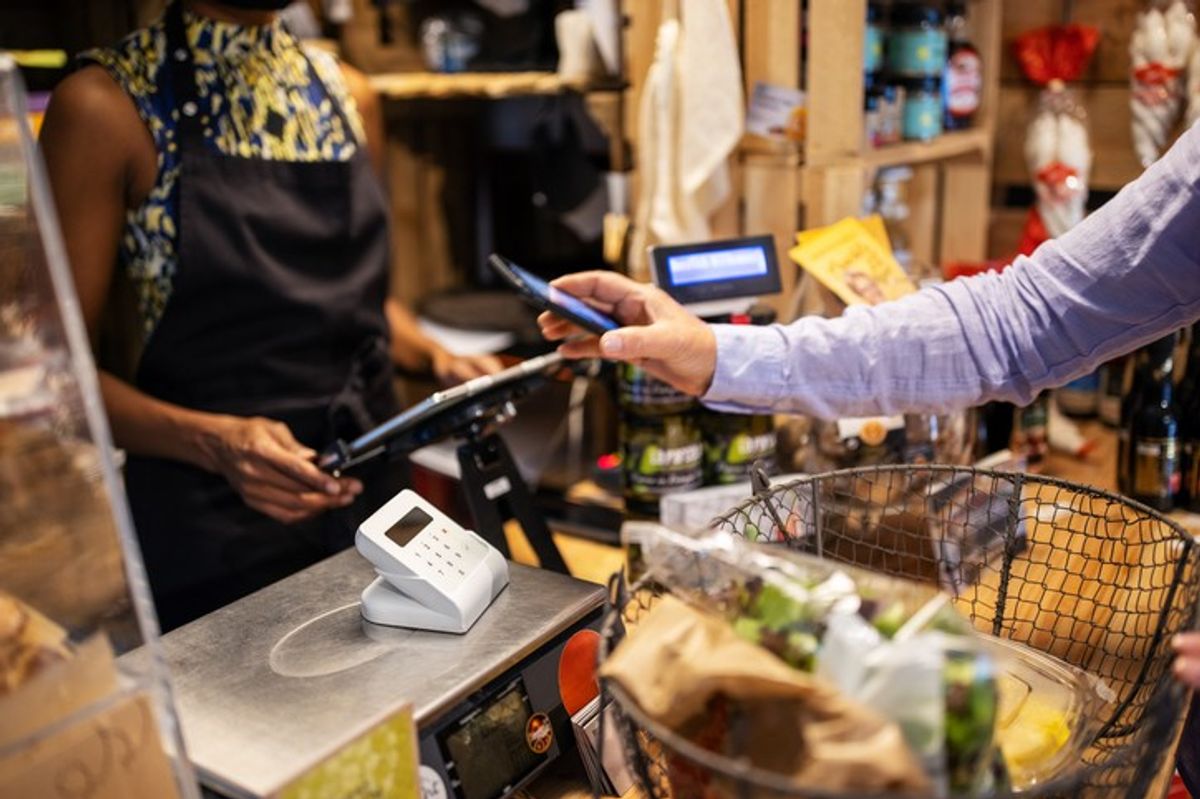Convenience store retailers could soon see fewer customers reaching for coins and notes at the till, as new research shows Britons are rapidly turning their backs on traditional wallets and are increasingly opting for digital wallets to make payments.
According to a study from cash machine network Link, fewer than half of people now carry a physical wallet, while digital wallets such as Apple Pay and Google Pay are fast becoming the norm.
The findings imply that leaving the house without cash is becoming much easier and more common, suggesting major implications for local convenience stores that still rely on cash spend, particularly for smaller top-up missions.
For younger shoppers, especially Gen Z and millennials, phone-based payments are now the default method.
Older adults continue to lean on debit cards, but the gap is narrowing.
Even so, the research warns that over-reliance on technology leaves consumers and retailers exposed to outages. Six in 10 respondents reported experiencing digital payment failures, with one in five abandoning purchases altogether as a result.
Despite this risk, more than one in ten adults now leave home with only a digital wallet as payment. This figure jumps to nearly 30 per cent for 35- to 44-year-olds, a demographic highly relevant for local convenience stores.
High earners are also much more likely to pay digitally than lower-income shoppers.
Cash still has its place, with over half of adults saying they had used it in the past week, mainly for budgeting, small purchases, or in shops with card minimums. But the trendline is clear that nearly five million Britons carry no cash at all, and 16 million keep none at home.
The average adult now carries just £20 cash and has another £10 at home. Among the over-65s, three-quarters still carry cash, compared with less than half of 18- to 34-year-olds.
Debit and credit cards remain the most used payment method overall, with 70 per cent of people carrying one. However, Link cautions that reliance on single providers or one stored card in a digital wallet could leave consumers stranded during system failures.
Adrian Roberts, deputy chief executive of Link, said, “The old saying ‘cash is king’ may still hold true for some, but today, it’s convenience that wears the crown.
“We’re more digitally reliant than ever but we’re also more exposed to technology outages than ever before. Recent power outages in Portugal and Spain exposed real vulnerabilities, with consumers unable to make simple purchases for necessities, such as food, medicines and fuel.”
For policymakers, the challenge is balancing continued access to cash with building resilience into digital systems. For local retailers, the findings underline the need to maintain cash handling capabilities even as contactless and mobile payments surge.


